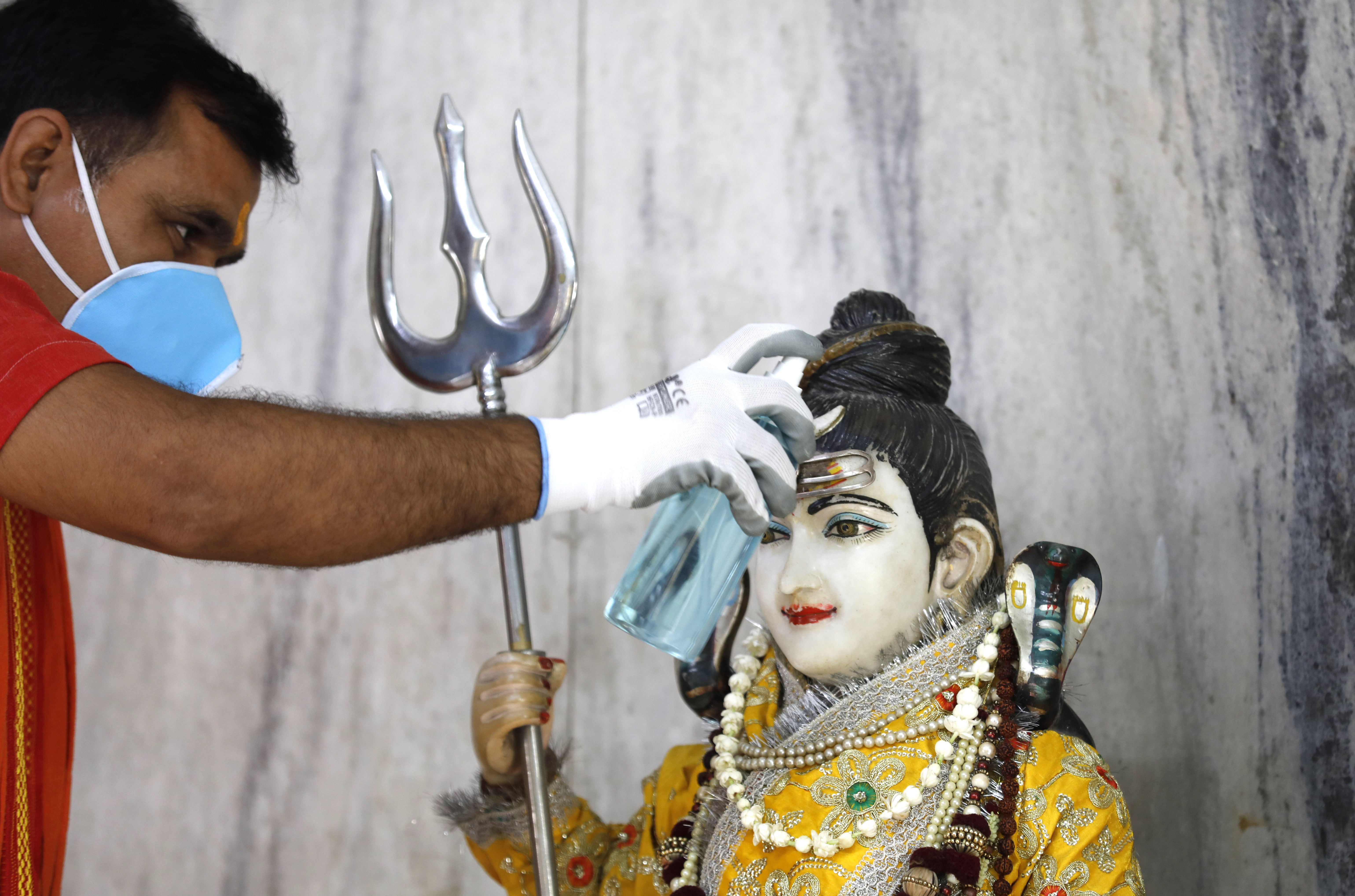
People shop at a mall that reopened in New Delhi, India, on June 8, 2020. /AP
People shop at a mall that reopened in New Delhi, India, on June 8, 2020. /AP
Malls and temples reopened in several cities across India on Monday despite the country recording a record daily number of new coronavirus infections, with the pandemic expected to ravage the country for weeks to come.
After a 10-week lockdown the government has risked lifting some restrictions in a bid to ease the devastating blow to the economy dealt by the coronavirus.
But the number of new cases rose by 9,983 to 256,611, Minister of Health and Family Welfare announced on Monday, putting the country of 1.3 billion on course to overtake Britain and Spain among nations with the highest number of infections.
The reported death toll of 7,200 is much lower than reported in other badly-hit countries, but the epidemic is only expected to peak locally in July, according to health experts.
Still, in the capital Delhi, shopping malls, restaurants, temples and mosques were allowed to re-open for the first time since March 25. Disinfection tunnels were installed at the entrance to Delhi's shopping malls, due to open later Monday.
The response was tentative, however, and only a trickle of people returned to some places of worship.
Businessman Mohit Budhiraja, wearing a mask and carrying sanitizer, went to his local temple in eastern Delhi for the first time since the lockdown.
"It felt like something was missing when I couldn't come to the temple for all these weeks," he said.
Worshippers wore masks, stood six feet (two meters) apart and went through thermal scanners at Hindu temples in Delhi and elsewhere in the country that are usually filled to capacity.
Harsh Vyas of an ISKCON (International Society for Krishna Consciousness) temple in the western city of Ahmedabad said access was strictly controlled.
"We are allowing only a small number of devotees inside the temple at one time. We have drawn circles where they need to stand to ensure proper distancing of at least six feet," Vyas said.

An Indian priest sanitizes the idol of Lord Shiva at a temple, in Prayagraj, India, on June 8, 2020. /AP
An Indian priest sanitizes the idol of Lord Shiva at a temple, in Prayagraj, India, on June 8, 2020. /AP
Delhi is one of India's worst coronavirus hotspots, accounting for 28,936 cases and 812 deaths – although media reports say the real figures are much higher. The city will not allow hotels to reopen because it said it might need to convert them into temporary hospitals if there were a big jump in cases.
"Our cases are rising each day; we could run out of beds," said Delhi Chief Minister Arvind Kejriwal.
Mumbai, which accounts for around a fifth of India's cases and where hospitals have been overrun, was more cautious. Roadside shops were allowed to re-open, but malls, restaurants and hair salons remained shuttered.
The Indian government says the tough lockdown it ordered on March 25 has limited the spread of the coronavirus.
But it is now bracing for a major hit to the economy, with millions of laborers now jobless.
Rating agencies have said the economy could contract by more than five percent this year, after average growth of about seven percent over the past decade.
Despite restrictions being eased last month, India's manufacturing sector is struggling to restart because of an exodus of migrant workers prompted by the lockdown.
Big cities – once an attractive destination for workers from poor, rural regions – have been hit by reverse migration as millions of laborers fled to their village homes.
"A lot of the manufacturing industry is actually located in the very states where the pandemic's impact has been great," Professor Santosh Mehrotra at Jawaharlal Nehru University told AFP last week.
"Now these are the areas where naturally workers have left in large numbers... They will not return in a hurry."
(With input from agencies)